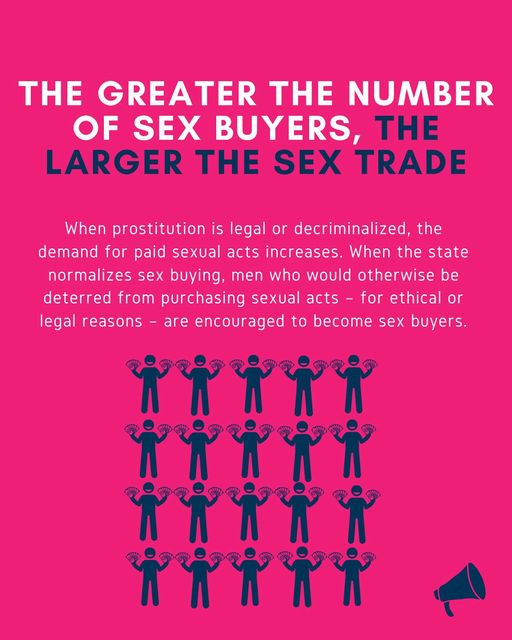Canada officially declared Feb 22 as National Human Trafficking Awareness Day in 2021, making 2023 our third annual recognition. Many initiatives have been developed with the four main action items being: 1. Learn, 2. Spread the Word, 3. Support, and 4. Get involved.
The bottom line is so basic and yet many organizations skirt around the issue by limiting their advocacy to education. Of course, awareness is important: Sex trafficking is real; it happens in every community with young people often lured and groomed by so-called friends; and it will continue to exist as long as our culture supports male entitlement to paid sexual access because there will never be enough “voluntary” providers.
My position is that we as a society need to take a much more assertive approach that simply equipping parents to warn their children of the danger of possible groomers. That simply downloads sexual exploitation to the next young person in line who may more vulnerable, less confident, more desperate for attention and/or economic benefit, or brainwashed into believing that selling sex could somehow be empowering. Warn our children, of course, but can we not also tackle the source?

Andrea Heinz and I have been working for the last two years on our book, When Men Buy Sex: Who Really Pays? We are pleased to have been accepted by FriesenPress and are looking forward to launch sometime this spring. Our journey has a number of detours and delays, although we hope it all made for a stronger presentation. We look forward to sharing publication details as soon as they are available.
In 2000, the United Nations adopted the Protocol to Prevent, Suppress, and Punish Trafficking in Persons Especially Women and Children. This Protocol was endorsed by Canada in 2002, which means we have had a legislative mandated for over 20 years to deal with this issue.
Section II of the Protocol speaks to providing assistance and protection to victims. Section III speaks to prevention and includes (emphasis added):
4. Parties shall … alleviate factors that make persons vulnerable to trafficking, such as poverty, underdevelopment, and lack of equal opportunity.
5. Parties shall … discourage the demand that fosters all forms of exploitation of persons that lead to trafficking.
While we support all initiatives such as preventative educational programs, exit services for providers, and more protection for children, we also encourage improved economic advantages (more than blow “jobs”) for disadvantaged women as well as legislative and cultural shifts.
In 2014, Canada responded with PCEPA, the Protection of Communities and Exploited Persons Act, which prohibits the purchase of sexual services. This rightly takes shame and blame away from vulnerable providers and puts responsibility on buyers. However, this legislation was passed by the Conservative government and, while it has successfully remained in place, it has NOT received full endorsement or implementation by the Liberals.
Our book addresses all of the above and more. In the meantime, it is encouraging to know that many citizens continue to rally and that work continues at many levels.


Please watch for statements from community leaders and support their efforts to end human trafficking. Thank you.
